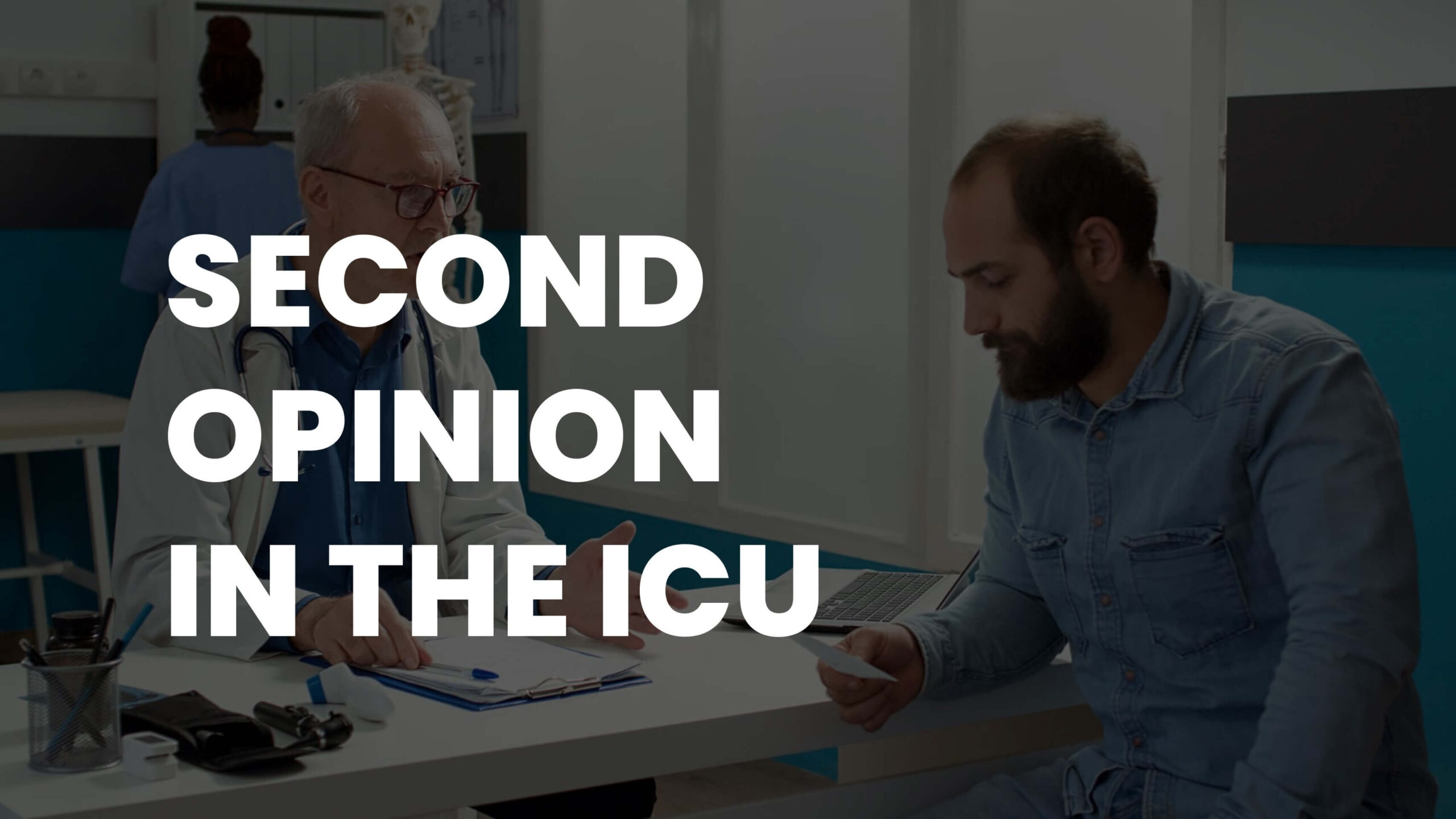
Second Opinion in the ICU - Overview
A second opinion can provide valuable insights and perspectives when a patient's condition is complex or existing treatment plans don’t help patient to show recovery as expected by ICU team.
In the ICU, where critical decisions are made rapidly, seeking a second opinion can be particularly important under the following circumstances:
Prolonged ICU Stay: If a patient has been in the ICU for more than 7-10 days without significant improvement or remains on ventilator support (or BiPAP) for over a week, a second opinion can offer fresh insights and potential alternative treatment strategies.
Rapid Deterioration: When a patient's condition worsens rapidly within 24-48 hours, a fresh neutral view can provide a different perspective on diagnosis and treatment options.
Unclear Diagnosis: When the cause of multi-organ failure or rapid deterioration (for example, low BP, low brain function, breathing difficulty or stopping of heart) is uncertain, a second opinion can aid in determining the underlying problem and developing an appropriate treatment plan.
Persistent or Recurrent Infections: If infections are not responding to treatment or keep recurring, a second opinion can help identify the specific pathogen and recommend appropriate antibiotics or other interventions.
Benefits of a second opinion
Fresh Perspective: A second opinion can offer a different viewpoint on the patient's condition and treatment plan.
Increased Confidence: Consulting with multiple experts can increase confidence in the chosen treatment approach.
Access to Specialized Expertise: A second opinion can connect the patient with specialists who have experience in rare or complex conditions.
Peace of Mind: Seeking a second opinion can provide reassurance and reduce anxiety for patients and their families.
How to obtain a second opinion?
When considering a second opinion, it's essential to choose a qualified, experienced and trustworthy expert in the relevant field. Your primary healthcare provider can help you find a suitable specialist. It's also important to gather all relevant medical records and test results to share with the second opinion provider.
In these complex case in ICU, a second opinion can provide additional expertise and support in optimizing patient care.
Acute pancreatitis
Polytrauma
Poisoning
Cardiac arrest and cardiogenic shock
Severe pneumonia
Comatose patients
Kidney failure
Heart failure
Liver failure
Organ donor management
Organ transplant critical care
We understand the importance of seeking a second opinion when faced with complex medical challenges.
Banner Source: www.freepik.com
Disclaimer: This information is intended for general knowledge and informational purposes only, and does not constitute medical advice. Always consult with a qualified healthcare professional for diagnosis and treatment.
Disclaimer: This information is intended for general knowledge and informational purposes only, and does not constitute medical advice. Always consult with a qualified healthcare professional for diagnosis and treatment.


